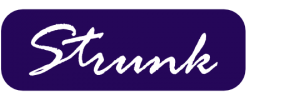2023 Potential Focus
In 2023, what will regulators and auditors focus their attention on the most? How can we get ready for a change in any law or regulations? How can Strunk’s software better prepare you for your audits and examines.
To determine the top regulatory hot button problems for 2023, Strunk examined supervisory priorities, enforcement trends, rulemaking agendas, speeches, blogs, and more. Below is the list of the items that seems to be focused the most on is 2023.
- Loan origination and servicing: The CFPB expects every regulated entity under its supervision and enforcement authority to have an effective compliance management system adapted to its business strategy and operations. Examiners should also use the compliance management system review procedures, to conduct review and testing of components of the supervised entity’s compliance management systems which is part of the 2023 Supervisory Highlights Junk Fees Special Edition from the CFPB.
- Credit Reporting: Inaccurate information on credit reports is the most frequent complaint that the CFPB receives. The CFPB refers complaints to your regulator agency even if they do not regulate you in their 2022 Fall Supervisory Highlights. Congress has issues of its own. Make sure your financial institution train workers, test credit reporting systems, and update rules and procedures that deal with the accuracy of information reported. Financial Institutions should immediately look into and resolve customer complaints.
- Lending practices & fair lending: Fair lending is expected to remain one of the major compliance issues, if not the main one. In its most recent annual report to Congress on fair lending, the Consumer Financial Protection Bureau (CFPB) highlighted in their 2022 Fall Supervisory Highlights, its efforts to oversee activities related to “mortgage origination and pricing, small business lending, student loan origination work, policies and procedures regarding geographic and other exclusions in underwriting, and on the use of artificial intelligence (AI) and machine learning models.” The agency has a solid track record of carrying out its obligations. There is no reason to believe that this will change in 2023 given the bureau’s track record of following through on its commitments.
- UDAAP focus on fees: A CFPB press release and information request from January 2022 helped popularize the phrase “junk fees” in the banking sector. The definition of a “junk” fee was not clear because the agency included services for concerts and hotel resorts with other fees that banks typically charge. However, the bureau explicitly mentioned overdraft, NSF, and late fees for credit cards in their press release. The bureau declared that in order to “reduce these kinds of junk fees,” it will “craft rules, issue industry guidance, and focus supervision and enforcement resources to accomplish this objective.”, which is stated in the 2023 Supervisory Highlights Junk Fees Special Edition.
- Deposit accounts: Ensure that you are abiding by both local and federal laws and educate your workers on policies and procedures. Making sure that each consumers gets full details regarding their accounts and understands it. This has been covered in several CFPB and FDIC reports around UDAAP.
- Vendor Management: Regulators are still very interested in your relationships with vendors, service providers, and fintech partners, particularly those who assist you in providing Banking as a Service. Your financial institution will be held accountable if a vendor violated consumer protection rules or caused a breach involving your data. Based on CFPB Consumer Financial Protection Circular 2022.
- BSA/AML/OFAC: Regulators have gone after BSA officers and management with individual fines per BankersOnline.com BSA/AML Civil Money Penalties. Worldwide instability creates new sanctions. Financial Institutions must implement rules, including beneficial ownership rules for the next few years.
- AI, algorithms and big data: It’s obvious that we’re only at the starting of sorting this all out because this subject has recently grown quite popular with the agencies. There are many facets of this problem to investigate, but one of the buzzwords is “digital redlining,” which refers to a form of discrimination where lenders limit credit availability or give credit on unfair terms based on applicants’ digital footprints. These new technologies are usually used by banks for marketing, fraud detection, and credit standards. Director Chopra’s comments focused on the use of AI in lending decisions. He stated that the CFPB will be “watching for digital relining,” citing what he called “algorithmic bias” and the need for investigation of whether “discriminatory black box models are undermining the goal” of equal opportunity.
Strunk offers a variety of software solutions to assist financial institutions with their Enterprise Risk Management. Strunk’s Risk Manager, Policy Manager and Vendor Manager solution will help financial institutions be better prepared for their audits and examines, covering most of the hot topics for 2023. Also, Strunk’s overdraft privilege programs assist financial institutions grow their bottom line while also making sure they are fully compliance with regulatory issues.


